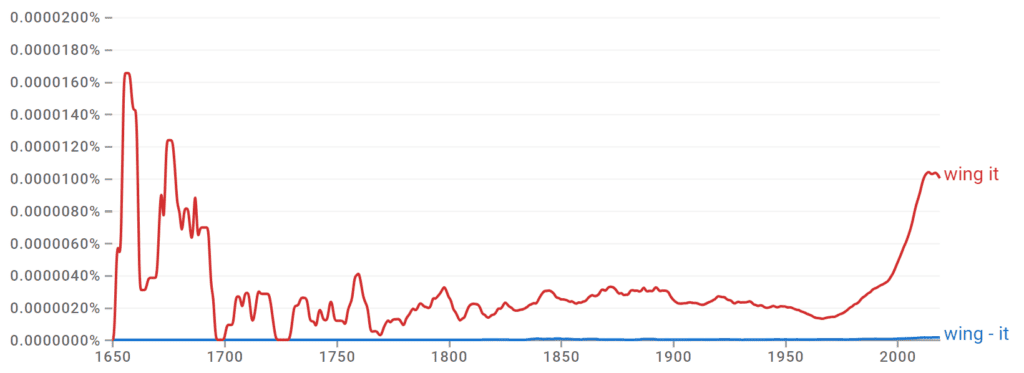Wing it means to complete something without planning or preparation. For example, suppose you were going on vacation but planned nothing except your flight and hotel. In that case, you might describe the rest of the experience as winging it and doing things based on how you felt each day.
Wing it is an idiom, meaning it is used figuratively to describe something through a creative association with something else. Most idioms have a literal origin. However, through the years, they have come to mean something different than their original meaning. They are essential to the English language due to their informal connotation common to English speech and expression.
Please keep reading to explore the meaning and use of the phrase wing it, and learn how to use it through various sentence examples.
Wing It Meaning Explained

The idiom wing it means to do something without proper preparation or planning. When someone says they will wing it, they will improvise, perform, speak, or accomplish something without preparation or forethought.
It infers that they will rely on their instincts and creativity rather than following a specific plan or strategy.
How to Use Wing It in Sentences
- The actor forgot his lines during the play but managed to wing it and ad-lib until he remembered what to say.
- We didn’t have a plan for our road trip; we decided to wing it and see where the journey took us.
- Instead of following a recipe, he preferred to wing it in the kitchen, experimenting with different ingredients.
- The comedian was so good at winging it that he could make the audience laugh even when his jokes didn’t go as planned.
- I didn’t have a script for the presentation, so I had to wing it and speak off the cuff.
- When the meeting agenda got lost, we had to wing it and discuss topics as they came up.
- With no map, we had to wing it and navigate through the unfamiliar forest.
Is Wing It Hyphenated?
Wing it is not hyphenated and is written as two separate words.
Wing It Origins

The expression wing it is theatrical in origin and was used to describe actors who had hurriedly learned their lines while waiting in the wings and then received prompts from there.
Its figurative use was first documented in an 1885 edition of The Stage magazine:
To wing… indicates the capacity to play a rôle without knowing the text… the artiste frequently received the assistance of a special prompter, who… stood… screened by a piece of the scenery or a wing.
Let’s Review
The expression wing it was first used in the realm of the theater. It describes when an actor was thrust into a role for which he was unprepared. The substitute performer might not know all the lines but was urged to improvise through the performance, accepting prompts from a reader who remained in the wings.
Today, the expression describes any event or action that has not been prepared for, either by accident or purposefully.
